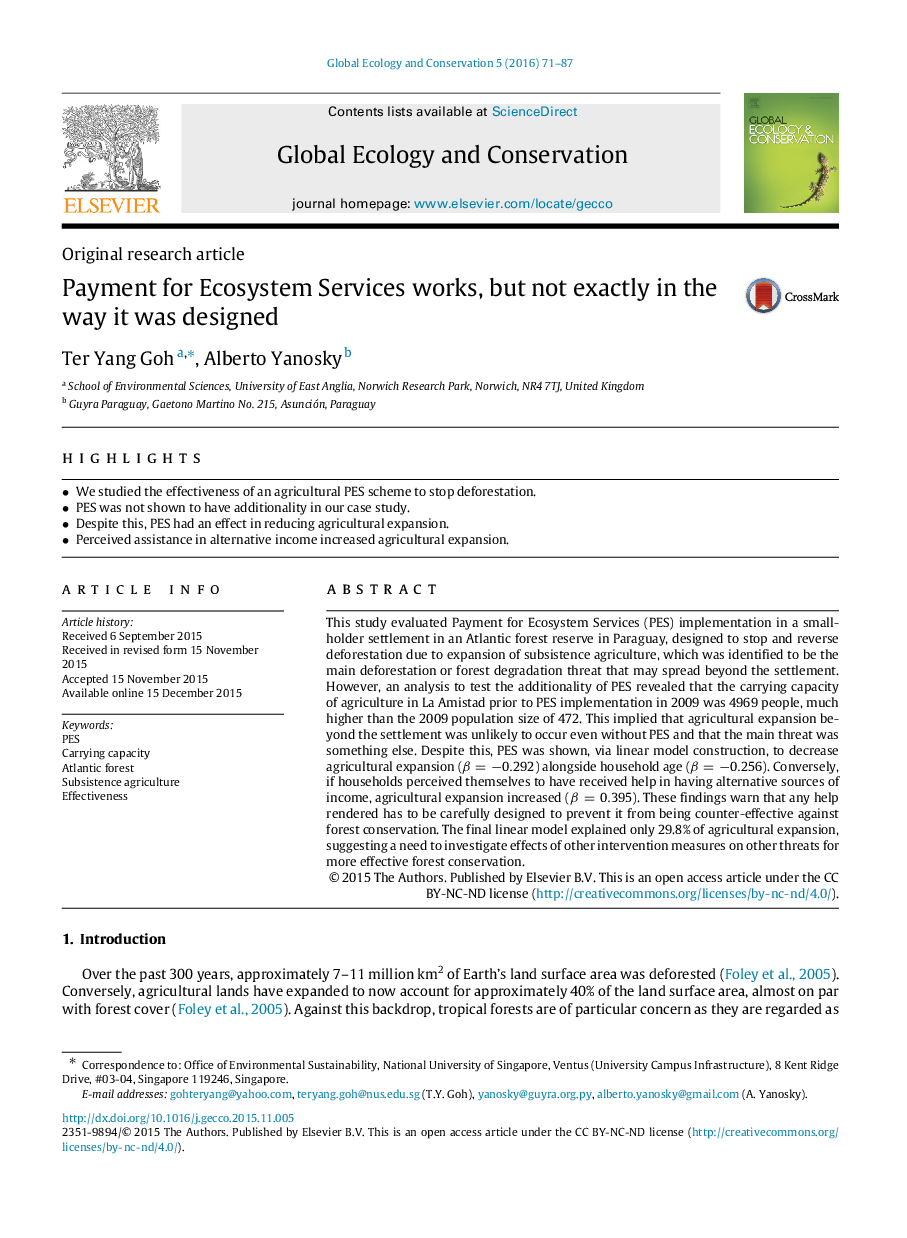| Article ID | Journal | Published Year | Pages | File Type |
|---|---|---|---|---|
| 4379710 | Global Ecology and Conservation | 2016 | 17 Pages |
•We studied the effectiveness of an agricultural PES scheme to stop deforestation.•PES was not shown to have additionality in our case study.•Despite this, PES had an effect in reducing agricultural expansion.•Perceived assistance in alternative income increased agricultural expansion.
This study evaluated Payment for Ecosystem Services (PES) implementation in a smallholder settlement in an Atlantic forest reserve in Paraguay, designed to stop and reverse deforestation due to expansion of subsistence agriculture, which was identified to be the main deforestation or forest degradation threat that may spread beyond the settlement. However, an analysis to test the additionality of PES revealed that the carrying capacity of agriculture in La Amistad prior to PES implementation in 2009 was 4969 people, much higher than the 2009 population size of 472. This implied that agricultural expansion beyond the settlement was unlikely to occur even without PES and that the main threat was something else. Despite this, PES was shown, via linear model construction, to decrease agricultural expansion (β=−0.292β=−0.292) alongside household age (β=−0.256β=−0.256). Conversely, if households perceived themselves to have received help in having alternative sources of income, agricultural expansion increased (β=0.395β=0.395). These findings warn that any help rendered has to be carefully designed to prevent it from being counter-effective against forest conservation. The final linear model explained only 29.8% of agricultural expansion, suggesting a need to investigate effects of other intervention measures on other threats for more effective forest conservation.
